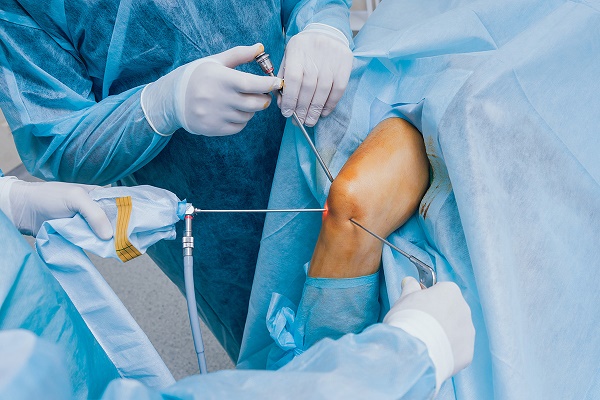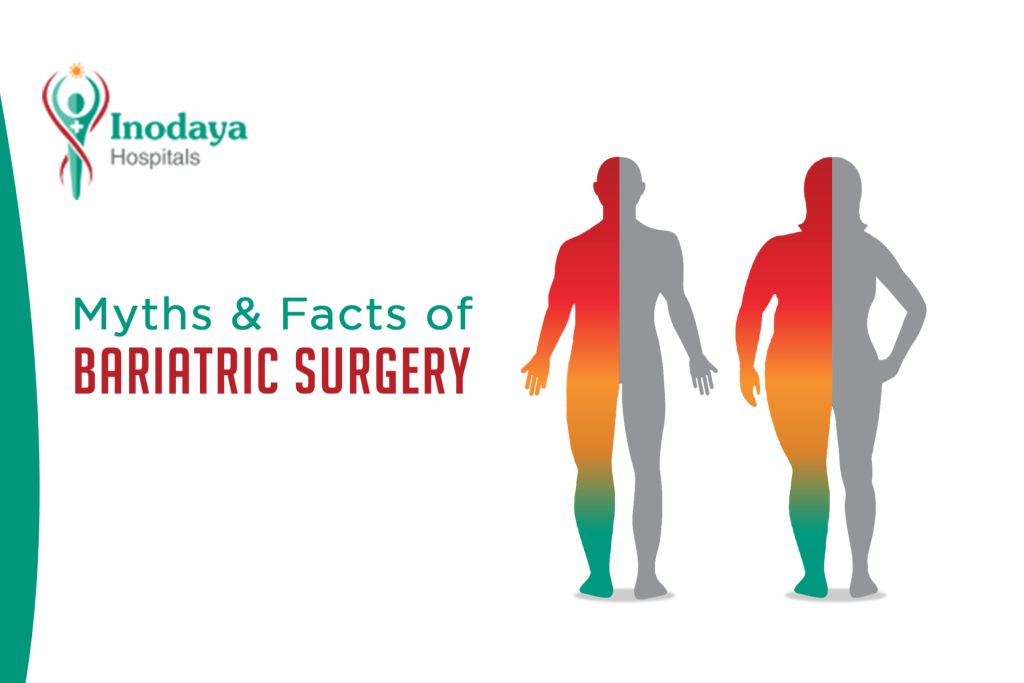Around the globe, many people consider bariatric surgery because of obesity at epidemic levels. There are many factors that contribute to obesity but are often misunderstood. Bariatric surgery, also called weight loss surgery is a popular treatment method for overweight or obesity.
However, we cannot recommend weight loss surgery to all obese patients because the physiological conditions of everyone differ. Performing surgical inventions to overcome obesity, there are several misconceptions about bariatric surgery.
Dr Ram Mohan, a leading Bariatric surgeon in Kakinada discusses common myths that prevent obese patients from proceeding with bariatric surgery.
7 Misconceptions of Bariatric surgery
Here, the bariatric and metabolic surgeons at Inodaya Hospitals share the facts you should know about weight loss surgery.
1. Bariatric surgery is an extremely risky procedure
Every surgical procedure has some potential risks and complications associated with it. But, with recent technological and medical advancements, various complications of bariatric surgery have been minimized. However, it is very important to choose your bariatric surgeon wisely, because surgery done by an accredited surgeon reduces the risks.
Also, you should discuss with your surgeon about the risks and benefits of each procedure before going to surgery.
2. Weight loss is the only benefit of obesity surgery.
Even though obesity surgery (bariatric surgery) plays a significant role in weight loss, it also results in increasing the health complications faced by obese patients including sleep apnea, type 2 diabetes, etc. In fact, a number of surgeries are being done for the remission of diseases like diabetes.
However, bariatric surgery that is done primarily to treat health conditions associated with obesity is called Metabolic surgery-says. Dr Ram Mohan.
3. Obesity surgery is a waste of time because you just regain weight in the future.
Researchers have concluded that people who have undergone bariatric surgery lose more weight than those who choose traditional weight loss methods. However, obesity surgery is not a miracle procedure to lose weight. You must strictly follow the diet and exercise regime as instructed by the surgeon to maintain the weight loss in the long run.
Weight regain depends on the type of procedure you choose. Discuss with your surgeon about the procedure which suits you, as there is no single procedure that suits everyone.
4. You will need plastic surgery after bariatric surgery
Not all patients that undergo bariatric surgery, require plastic surgery- says Dr Ram Maohan, the best bariatric and metabolic surgeon. Losing a significant amount of weight over a short period of time can leave you behind loose or sagging skin. This varies from person to person based on how much weight was lost and age. Patients who indulge in regular exercise may rarely require plastic surgery.
Today, most of the bariatric surgeries are done through laparoscopy. So that there would be no big scar that will require plastic surgery.
5. Bariatric surgery will prevent pregnancy
Females who undergo weight loss surgery are advised to wait for an year after surgery to get pregnancy, because it could interfere with weight loss. But experts suggest that bariatric surgery or weight loss surgery will not affect the ability to conceive, carry a baby or give birth. In fact, weight loss is an important step when trying for a baby since obesity itself can lead to infertility in both men and women.
6. Weight loss surgery entails long recovery time
Most of the bariatric surgeries are laparoscopic, which means the surgeon makes small cuts for a short time recovery. Patients who undergo weight loss surgery need to stay in the hospital for 2 to 3 days. They can resume the solid diet after 4 weeks of surgery, and get back to their normal activities.
7. Isn’t matter which type of bariatric surgery you have?
False. Just as no two people are alike, every operation we do is very different -says Dr Ram Mohan. There are a variety of options available that work differently to help people lose weight.
- Someone with diabetes needs gastric bypass surgery, which reduces the size of the stomach and bypasses some part of the small intestine.
- For patients with BMI up to 50, sleeve gastrectomy is preferred. This is often the best procedure that removes a large portion of the stomach along the greater curvature.
- Another popular procedure for higher BMI is gastric band surgery. This is a surgical procedure where a band decreases the size of the stomach and restricts the amount of food you intake.
Bariatric surgery doesn’t just help you live longer but it also helps you live better. Have you been considering bariatric surgery? Approach Dr Ram Mohan, the best bariatric surgeon at Inodaya Hospitals Kakinada.






















































